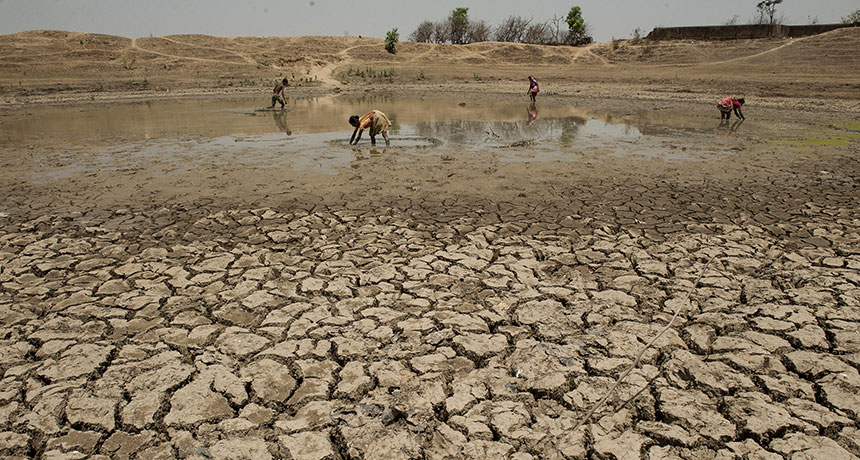Climate Change Crisis : Africa, Beware Of Heat Surge!
- Par Kimeng Hilton
- 14 Jul 2023 21:23
- 0 Likes

A study recently conducted by the University of Oxford says the continent risks extreme temperatures if global climate targets are not met.
Despite recent forecasts by Cameroon’s meteorological authorities warning of imminent unprecedented downpours and flooding, especially in the coastal areas of the country, a new research by the University of Oxford in England says Cameroon – amongst other African countries – will face the highest surge in heat exposure if the planet warms by 2ºCelsius.
Multi-prong Team
The study was conducted by Dr Radhika Khosla, Associate Professor at the Smith School of Enterprise and the Environment and leader of the Oxford Martin Programme on the Future of Cooling; and Dr Nicole Miranda, Senior Researcher at the University of Oxford and member of the Oxford Martin Programme on the Future of Cooling. Other members of the research team were Jesus Lizana, Sarah N. Sparrow, Miriam Zachau-Walker, Peter Watson, David C. H. Wallom and Malcolm McCulloch.
To Be Most Affected
The worldwide analysis concluded that African countries not only had the highest cooling requirements historically between 2009 and 2018, but will also face the highest surge in heat exposure if the planet warms by 2ºCelsius. The most affected countries will be Cameroon, the Central African Republic, Burkina Faso, Mali, South Sudan, Nigeria, Congo, Democratic Republic of the Congo, Chad and Uganda.
Conservative Estimates
According to the study, other countries that are not traditionally prepared for increasing heat will also be severely impacted by rising temperatures if climate targets are missed. Eight of the ten countries with the greatest relative increase in uncomfortably hot days are expected to be in Northern Europe, with Canada and New Zealand completing the list. Switzerland, the UK and Norway will see an increase of 30% on days with uncomfortably hot temperatures. The researchers stress that this is a conservative estimate and does not consider extreme events like heat waves, which would come on top of this average increase.
“Cooling Degree Days”
For their analysis, the authors used the concept of “cooling degree days,” a method widely employed in research and weather forecasting to ascertain whether cooling would be needed on a particular day to keep populations comfortable. They modelled the world in 60 km grids every six hours to produce the temperature averages in the study, a process that makes the results some of the most reliable globally.
Cooling, Necessity For Africa
According to Dr Youba Sokona, Vice-Chair of the Intergovernmental Panel on Climate Change, IPCC, no country is safe from climate change. “This should remind us of the need for global solidarity and cooperation in efforts to remain below 1.5ºC warming. The extreme temperature increases predicted by this research also are evidence that cooling will no longer be a luxury, but a necessity across Sub-Saharan Africa. Many African countries are now at an energy crossroads, and meeting increased energy demand for cooling will be a key challenge of sustainable development,” Dr Sokona noted.
Extreme Temperatures Imminent
“Our findings show that nations already facing heat waves and extreme temperatures, like those in the tropics, will see a major increase in extreme temperatures if the global mean temperatures rise from 1.5ºC to 2.0ºC. This is particularly true for central African countries, with the Central African Republic, Burkina Fas...
Cet article complet est réservé aux abonnés
Déjà abonné ? Identifiez-vous >
Accédez en illimité à Cameroon Tribune Digital à partir de 26250 FCFA
Je M'abonne1 minute suffit pour vous abonner à Cameroon Tribune Digital !
- Votre numéro spécial cameroon-tribune en version numérique
- Des encarts
- Des appels d'offres exclusives
- D'avant-première (accès 24h avant la publication)
- Des éditions consultables sur tous supports (smartphone, tablettes, PC)














Commentaires